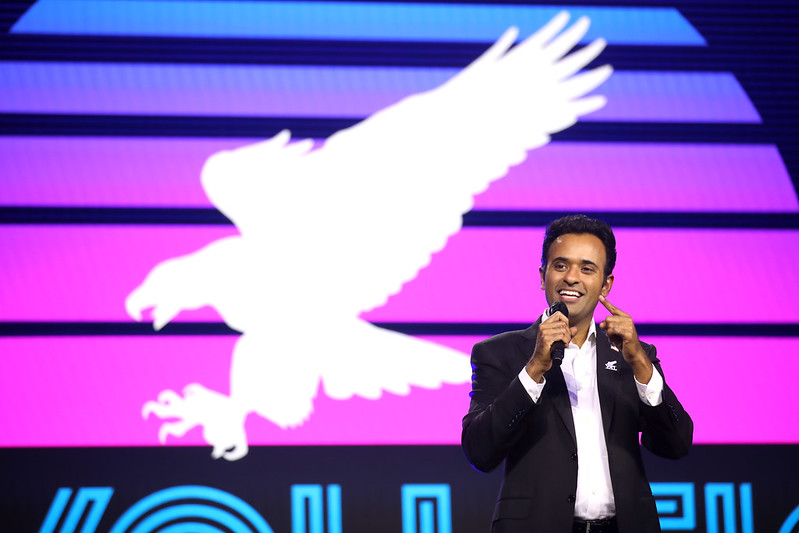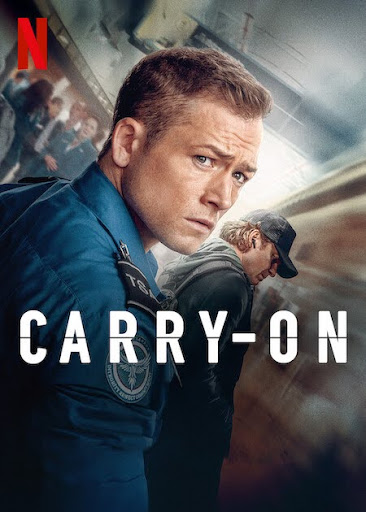A series of applause rings from the forum as a middle-sized brown man declares how the climate change agenda is a hoax. A rising star in the Republican party, Vivek Ramaswamy has all the qualities of an ideal candidate for the party. He is not a career politician, he is the youngest candidate and a successful entrepreneur. His strategies involve appealing to a younger voting base and using culture war issues to rise in the polls.
Ramaswamy’s tactics aren’t much different than someone like Ron DeSantis but what sets him aside is his unwavering support for Donald Trump. Born in an immigrant family, Ramaswamy grew up in a relatively upper-middle-class neighborhood in Cincinnati. He created multiple ventures after graduating from Harvard University and, according to him, had a net worth of 15 million dollars before getting accepted by Yale University for a J.D. He went on to start Roivant Sciences, a pharmaceutical company that has created drugs for Alzheimer’s through its subsidiaries.
Ramaswamy’s entrance to politics started around 2020 when he put his support behind Donald Trump and began to appear on cable networks, usually trying to debate multiple contributors on hot-button issues such as ESG (environmental, social, and governance) policies, regulations, and climate change. However, these strong tactics are unappealing to the younger voter base that he is desperately trying to win over by his use of the popular social media app, Tik Tok. His policies of raising the voting age, abolishing federal institutions like the Department of Education, and dismissing climate change will not help him win over the coveted youth vote as the number of eligible new voters grows every year.
Ramaswamy’s strategy of appealing to a younger voting base through the use of social media platforms like TikTok is undoubtedly a savvy move. In an era where digital engagement plays a pivotal role in political campaigns, harnessing the power of these platforms is a necessary step. According to the Politico article “Will Politicians Ban Their Best Way of Reaching Young Voters?” author Nancy Scola underlines the importance of TikTok in reaching young voters and notes that campaigns have started pouring money into the pursuit of swaying young voters. However, it’s essential to analyze whether his policies align with the values and concerns of the very demographic he seeks to attract.
Raising the voting age is a policy stance that could prove divisive among young voters. As the youth voter base continues to grow, many of these individuals are actively engaged in political discourse and eager to exercise their democratic rights. Proposing an increase in the voting age could alienate this group, as they may perceive it as an attempt to suppress their voices. While Ramaswamy may gain support from some quarters, he risks losing ground with the young and politically active segment of the population.
Similarly, advocating for the abolishment of federal institutions like the Department of Education could face opposition, particularly from those who see the importance of a federal administrative power for education. Without federal educational standards, bad actors in states would be able to devalue important historical events and throw out important courses (like Florida’s ban on AP Psychology) that would be vital to students’ education. The DOE creates a baseline assessment framework that helps states adjust their curriculum to help students meet or exceed that baseline.
In an article by The Hill, “2024 Republicans want to eliminate the Education Department. What would that look like?,” Lexi Lonas outlines that the DOE is a main concern for the Republican candidates. Many candidates believe it uses too many resources, is responsible for the decline in education, and uses the department as a backdrop for culture war issues. Ramaswamy has similar concerns. Defunding or abolishing the DOE, however, would not alleviate the decline in the education system. The Public Policy Institute of California has depicted that the growth of funds in the school system, when used adequately, has increased the performance of students. While there may be legitimate concerns about bureaucracy and inefficiency within government departments, Ramaswamy’s approach to addressing these issues may not resonate with a broad spectrum of voters, including younger ones who value access to quality education and support for students.
Lastly, dismissing climate change as a hoax runs counter to the growing concerns about environmental sustainability among younger voters. Climate change is a pressing issue for many voters and solutions to combat it are a priority for a significant portion of the electorate. Ramaswamy’s stance on this matter may find support among some conservatives, but he is likely to be met with skepticism and opposition from environmentally conscious young voters who are demanding action to address climate change.
While Ramaswamy’s outreach to younger voters through social media is a strategic move, the policies he advocates may not align with the values and priorities of this demographic. Winning elections requires not only reaching out to new voter bases but also addressing their concerns and values. Ramaswamy’s challenge will be to find common ground with young voters on these critical issues to make his candidacy appealing and viable in the long run.
























Paul Le Morvan • Sep 28, 2023 at 9:17 am
i love vivek!!1!